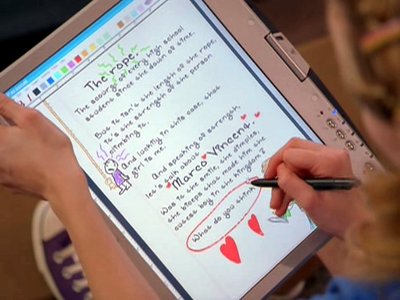Language and Literacy Narrative
“Dear Diary, I just saw the most horrifying video of how animals are treated on farms.
I’m so thankful pigs are haram; the way they’re treated is horrible! So are the little chicks. If
they’re sick or unneeded, they get burned, suffocated to death, and don’t get me started on cows.
” I closed my diary and started tapping it with the end of my pencil. I started wondering if I
should go vegan, but I knew my South Asian mother wouldn’t be too happy with her 11-year-old
daughter cutting out meat. I flipped open my diary again and stared at the page. Was it even
worth writing my thoughts down on this piece of paper? I’ve never had a good relationship with
English. I felt as if my thoughts and expressions of words were always reduced to a single
number or grade. Red ink crossing out words, adding periods or colons, or saying my thoughts
were a B+. But I quickly realized that with this book, it was all mine. No rules or outlines are
needed. Just me and my thoughts without second guessing my words or rewriting sentences.
The teacher I had in 6th grade was really strict with our narrative or creative writing,
which now looking back was kind of ironic. She made me rewrite papers because they weren’t up
to her standards. However, I was still determined. I got extra help from my older brother in
college, and I still never felt like my writing was enough. The strictness of it discouraged me
from writing. But after watching that horrifying video of how animals were treated at 11 years old,

the first things I grabbed were a pencil and a book. I found that journaling a few times a
week improved my writing, especially about things I was passionate about–like feminism or
animal cruelty.
Going into my 7th-grade year, I fell in love with writing. I became very optimistic about
my writing and daily improvement. Looking back, maybe my 6th-grade teacher wasn’t that bad.
She just saw the potential that I didn’t see in myself. I needed a fresh start with writing. I had the
right mindset this time. I just really wanted to be a good writer to effectively communicate
without over-explaining myself. I paid more attention to grammar and convinced myself to read a
book. I went to my eldest brother’s room and searched through many titles. Not only that, but I managed to find a
book called “The Art of Thinking Clearly” by Rolf Dobelli. My first impression of this book
(only looking at the cover and title) was that it was the perfect book for my journey of learning
about myself and the world. The author, Rolf Dobelli, managed to be lively and humorous while
simultaneously being very informative. His form of writing inspired me to always aim to be
engaging with my writing. For persuasiveness, narrative, and description, I needed to actually
practice the language. And how to efficiently use language to communicate. Real communication
with honesty and purpose. But this mindset came along pretty late in my journey as a writer.
When I was about 11 years old, I bought my first journal. I was inspired by the movie
“Read it and weep”. A movie about a teenage girl like myself and her journey as a writer. She
seemed to enjoy journaling, and my younger self was very intrigued. Her book caught a lot of
attention, and she was a soon-to-be author. My first journal had a pink cover with black
butterflies on it. I would usually write about my days, and it would go something like my
thoughts on animal cruelty.

As I got older, I fell in love with English. Even if it wasn’t always
that way, I grew to love the articulation and punctuality of it all. To this day, I always aim to
become a better writer and do my best when communicating my life to others. Although writing
in my journal helped me grow my love for academic writing as well, the way I deliver the two
will never be the same.
I realized that the way I use language depends on the circumstance and to whom I may
be speaking. I wouldn’t text my friends the same way I would talk to a teacher, and that’s
because there are influences that form the way we communicate and how. When I talk to my
friends, I am more open with my choice of vocabulary because of my comfort with them.
Whereas if I was talking to an adult, some vocabulary words may not be appropriate. I believe the
broad spectrum of how I can use language and fluctuate in different settings is what drew me to
it is more. Sometimes, communicating my thoughts freely without having to wonder how well my
sentences were articulated, was freeing. But, also being able to express my ideas or opinions in a
revised and well-sought-out way also felt rewarding and validating. My intrigue about how to
become a better writer is what grew my relationship with writing. It takes practice and a lot of
constructive criticism. As people, we always have to be willing to understand where and how we
are wrong in order to improve, and that is the beauty of learning.


